CIA Sponsored Terror, Civil Liberties, Human Rights, Iraq War, Military Tribunal, Political Prisoner, Prison Industry, Prosecution of the Bush Administration, Supreme Court, Surveillance, Targeting Muslims, Torture, Truth to Power
Podcast: Play in new window | Download
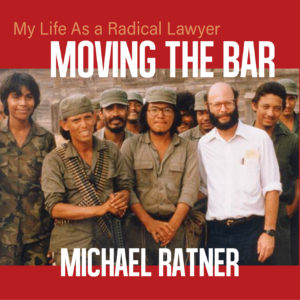
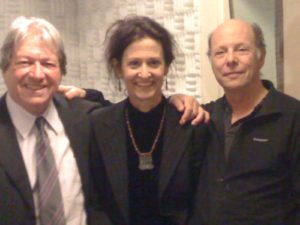
Hosts Heidi Boghosian and Michael Smith interviewed some of Michael Ratner’s closest friends and colleagues as part of a special broadcast highlighting Michael Ratner’s legal work and mentorship. The special also marked the upcoming release of Michael Ratner’s autobiography Moving The Bar: My Life As A Radical Lawyer published by OR Books. In this one hour taken from the two hour fundraiser broadcast, we hear from attorneys including Eleanor Stein, Richard Levy, Ray Brescia, David Cole and Baher Azmy.
—
Michael Ratner’s pathbreaking legal and political work is unmatched. He provided crucial support for the Cuban Revolution and won the seminal case in the Supreme Court guaranteeing the right of habeas corpus to Guantanamo detainees. Michael also challenged U.S. policy in Iraq, Haiti, Nicaragua, Guatemala, Puerto Rico and Israel-Palestine. This book is a testament to his unflagging efforts on behalf of the poor and oppressed around the world.
– Marjorie Cohn, Professor Emerita, Thomas Jefferson School of Law
Michael Ratner personified lawyering that brought both radical and human values into challenges to the use of governmental power to violate the essence of the Bill of Rights. From the torture of prisoners after 911 to the massive racial profiling by the New York Police Department, Michael’s voice and vision continue to resonate. This book provides a powerful testament to the spirit of this extraordinary man.
– Attorney Bill Goodman

Civil Liberties, Human Rights, Political Prisoner, Prison Industry, Supreme Court, Surveillance, Truth to Power
Podcast: Play in new window | Download
- Commentary On The 2020 Election By Attorney Jim Lafferty
—-
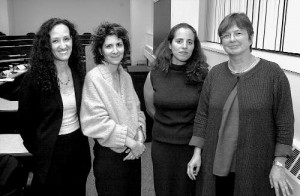
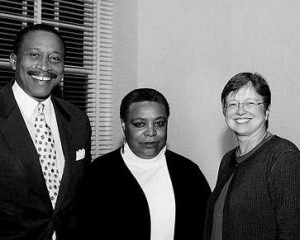
Lawyers You’ll Like: Professor Holly Maguigan
In our Lawyers You’ll Like series we’re joined by Professor Holly Maguigan, Professor of Clinical Law at the New York University School of Law, where she teaches Comparative Criminal Justice Clinic: Focus on Domestic Violence and Evidence. Professor Maguigan is an expert on the criminal trials of battered women. Her research and teaching is interdisciplinary. Professor Maguigan is a member of the Family Violence Prevention Fund’s National Advisory Committee on Cultural Considerations in Domestic Violence cases. She serves on the boards of directors of the National Clearinghouse for the Defense of Battered Women and the William Moses Kunstler Fund for Racial Justice. She is a past co-president of the Society of American Law Teachers, the largest membership organization of law professors in the U.S.
Professor Holly Maguigan:
- I was doing medieval history and I was at Berkeley. It was 1967 and Oakland stopped the draft.
- I got very interested in the anti-war politics.
- I hated lawyers. I really hated lawyers. They were boring. They talked about themselves all the time. They only had stories about their cases and how great they were and they would never post bail when people got arrested.
- The University of Pennsylvania in Philadelphia is where I stayed for 17 years.
- First I started out as a public defender. I loved being a public defender, it was the beginning and end of everything I hoped it would be.
- That’s where I met David Rudovsky and David Kairys. They were then defenders while I was a student.
- After they went out on their own, they kept inviting me to join them. I kept putting it off because I loved being a defender so much.
- In Philadelphia there was much more actual litigation, not just motion litigation there’s a lot of that here in New York City but actual trials.
- You had a sense, there was an analysis that people were doing life on the installment plan and you needed to do what you could to kick them loose any particular time.
- It was a community in its own odd way and I found it difficult to leave it.
- I was doing major felonies within a couple of years.
- David Kairys was very focused on constitutional litigation and government misconduct. He did the Camden 28 which was a big draft resistance case.
- My interest was more into criminal defense.
- Grand juries (all over the country) convened to investigate the alleged transportation of Patty Hearst by the SLA from California where she had been captured.
- He was a killer. (Frank Rizzo) There was no question. More people died in police actions before or since.
- I don’t mean to suggest that all the police started out as homocidal. This was a situation which from the top down came the message if you’re a good cop then you’re going to take people out however you think you need to.
- I knew about race and class bias in the court room as much as a white woman who was middle class could know.
- I was just blown away by what happens when you add hatred of women to hatred of black people and hatred of poor people.
- Judges would go by me in the hall and say Maguigan, ahem, you didn’t give me anything this Christmas, not even one lousy bottle, you’re not getting any assignments.
- Judges would do things, like open the drawer in their chambers, and there would be wads of bills, and they’d let you know.
- I developed a specialty on women who kill men.
- In the early eighties a group in Philadelphia called Women Against Abuse began working and they did advocacy for battered women accused of crime and meant a huge difference.
- The battered women cases I was working on were quite consuming because people then didn’t know very much in how to try these cases.
- The judges expected you to plead insanity or guilty. Reasonable doubt was a consideration at sentencing not at trial.
- There were cases that did require teams. There was no question.
- I wanted to be in court. I wanted to be in the presence of that conflict between the authorities and regular people.
- I went to NYU where I taught in the criminal defense clinic for many years.
- To see students react to the great stories their clients have is just amazing.
- SALT (Society of American Law Teachers) is about who gets into law school, what they learn and who teaches them. It’s about access to justice. It’s about relating to law school as a place where you train people to do social justice. SALT’s focus is on students and teaching.
- Holly Maguigan to be honored by Society of American Law Teachers.
Guest – Professor Holly Maguigan teaches a criminal defense clinic and one in comparative criminal justice as well as a seminar in global public service lawyering and a course in evidence. She is an expert on the criminal trials of battered women. Her research and teaching are interdisciplinary. Of particular importance in her litigation and scholarship are the obstacles to fair trials experienced by people accused of crimes who are not part of the dominant culture. Professor Maguigan is a member of the Family Violence Prevention Fund’s National Advisory Committee on Cultural Considerations in Domestic Violence cases. She serves on the boards of directors of the National Clearinghouse for the Defense of Battered Women and the William Moses Kunstler Fund for Racial Justice. She is a past co-president of the Society of American Law Teachers, the largest membership organization of law professors in the U.S.
Civil Liberties, Habeas Corpus, Human Rights, Supreme Court, Surveillance, Targeting Muslims, Torture, Truth to Power
Podcast: Play in new window | Download
- Commentary On Julian Assange’s Case By Attorney Jim Lafferty
—
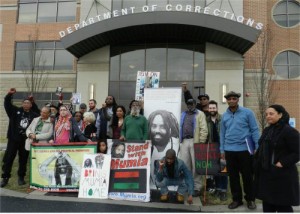
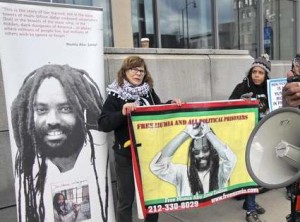
Capital Punishment: Mumia Abu-Jamal And Heidi Boghosian
Journalist and activist Mumia Abu-Jamal spent 40 years on death row in Pennsylvania. As listeners will recall, in 2012 his death penalty sentence was overturned by a Federal Court and he entered general population. While on death row he published 13 books and numerous commentaries on issues of social justice and the carceral state. In a special interview, Mumia joins us to reflect on capital punishment and its relationship to our modern society.
—-

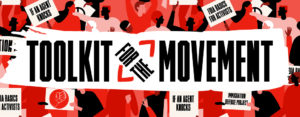
CCR: A Rights Based Vision for the First 100 Days
Some political skeptics , distrusting of the incoming Biden administration, are saying that it’s “ out with the old in with the older.“ That is that the old neo-liberal crew from the Obama/Clinton days are back in power and that little will change, nothing fundamental.
They are especially concerned about the impending climate catastrophe, systemic racism, the threat of nuclear war, the shifting of wealth from the bottom to the top, and the never ending forever wars. The Center for Constitution Rights has developed a comprehensive program to challenge this. It is called A Rights Based Vision for the First 100 Days.
Guest – Center for Constitutional Rights Advocacy Director attorney Nadia Ben-Youssef, is a graduate of Princeton University and the Boston College of Law. She has worked with the Adalah Justice Project for Palestinian rights In the Negev in southern Israel.
Civil Liberties, Human Rights
Podcast: Play in new window | Download

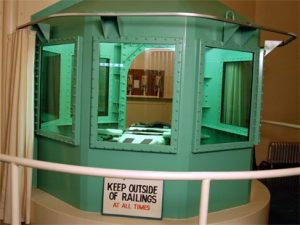
Federal Death Penalty Analysis Under President Trump
Donald Trump is on a killing spree, according to an article by noted death penalty expert Austin Sarat in the Guardian. After a 17-year hiatus, Attorney General William Barr restarted the federal death penalty by executing Daniel Lewis Lee on July 14, 2020, even though Lee’s ringleader accomplice received life in prison. Thus far the administration has put ten persons to death with three more executions on the docket in the days before Joe Biden’s inauguration. A new DOJ rule allows the US to use more methods for executions, including firing squads, gas, and electrocution.
William Barr says his justice department is simply upholding existing law. But the timing of the executions is just weeks before Joe Biden takes office, and the uptick in numbers is a departure in past practice. After the Supreme Court reinstated the federal death penalty in 1988, federal executions have been rare.
Guest – Attorney Marc Bookman, an internationally recognized expert in the field of capital litigation. Marc is the Co-Founder and the current executive director of the Atlantic Center for Capital Representation. From 1993 to 2010, he served in the Homicide Unit of the Defender Association of Philadelphia. He has taught at countless death penalty conferences and hands-on trainings across the nation. Marc has published widely on various aspects of capital jurisprudence. He earned his BA from the University of Pennsylvania, and his JD from the University of North Carolina.
—-

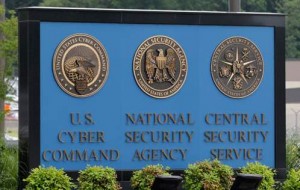
Technology and Activism
During the Trump administration the United States has witnessed an uptick in dissent and activism after a rash of attacks on social services and human rights. As we’ve seen throughout history, a groundswell of youth activism has led the way in fighting for climate protection, racial justice, gun control, and many other critical issues. Driving this increase in activism is accessibility and advancement of specific technologies that help people use mass communication tools more easily and affordably.
At the same time, in the past four years Donald Trump installed a new FCC head with ties to big tech. One of the first orders of business was to get rid of net neutrality—the principle that Internet providers treat all users equally. That means that big tech can’t slow down a student or community blog while affording wealthier companies and advertisers with high speed service. Trump has also banned TikTok and WeChat, and his Commerce Department added the Chinese tech giant Huawei to its “entity list,” which curbed the company’s ability to use American-origin chips, software and other technology.
During the Covid pandemic, the shift to online learning and online physicians’ appointment has witnessed a dramatic increase in cyberattacks which pose a threat to the overall security of our virtual world.
Guest – Ken Montenegro, Technology Director at the Center of Constitutional Right. Before he was the Information Technology Director at Asian Americans Advancing Justice in Los Angeles. He is a long-time activist with grassroots communities and movements, in particular around immigration and racist policing. Montenegro is also the current Executive Vice President of the National Lawyers Guild. He’s a co-founder of the Stop LAPD Spying Coalition and one of the founding members of the Radical Connections Network.
Civil Liberties, Human Rights, Prison Industry, Supreme Court, Truth to Power
Podcast: Play in new window | Download
- Commentary from Attorney Jim Lafferty, Host of the Lawyers Guild Show
—-
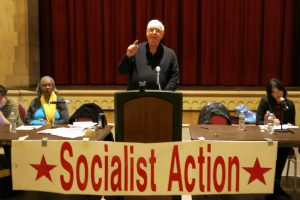
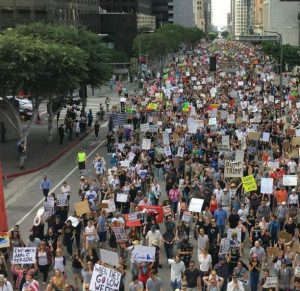
The Aftermath And Momentous Turning Points
The year 2020 will be seen as historically momentous, as a turning point in American history. The summer saw mobilizations of tens of millions of people, white and Black, mostly young, from small towns and large cities,under Black leadership and under the banner of Black Lives Matter. This tremendous mobilization was a reaction to the systemic racism and gross inequality that exists in the United States.
The manifestations were followed by the defeat of the cruel racist billionaire demagogue Donald Trump by 6 million votes in the fall election. All the institutions of the ruling elite collaborated to bring about Trump’s defeat. The main stream media, the CIA, the FBI, renegade Republicans, and 131 billionaires all supported Joseph Biden.
Only a tiny number of people refused to support either party candidate. Most of the progressive movement was swept back into the Democratic party seeing it is the lesser of two evils and hoping that change could be wrought from the inside. Will it? Where does social change come from? Historically the Democratic Party has been the graveyard of social movements. Will this continue to be the case?
After he won, Biden posted that “I am the guy that ran against the socialist, OK. I’m the guy that’s the moderate.“
Guest – Jeff Mackler. Jeff is a longtime California bay area socialist activist, he recently authorized “A Manifesto for Our Times: The Challenge to Abolish Systematic Racism“. He is the chair of the Mobilization to Free Mumia Abu Jamal and active in the defense of Julian Assange.
—-

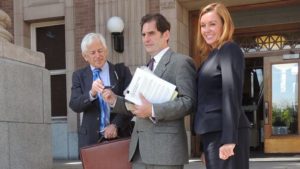
Complaint Filed Against Judge Demanding Release of Attorney In Chevron Case
Dozens of legal organizations representing more than 500,000 lawyers along with more than 200 individual lawyers submitted a judicial complaint against Judge Lewis A. Kaplan in New York. The violations were directed at human rights lawyer Steven Donziger whose case we’ve been following on Law and Disorder. Donziger, listeners will recall, won a historic judgment against Chevron in Ecuador to clean up the pollution caused by decades of oil drilling with no environmental controls.
The complaint was filed by the National Lawyers Guild and the International Association of Democratic Lawyers (IADL). The Chief Judge of the Second Circuit Court of Appeals, Robert Katzmann, has a duty to read the complaint and determine if he will appoint a committee to investigate and issue findings.
The complaint documents is a pattern of ethics violations committed by Judge Kaplan, a former tobacco industry lawyer.
Kaplan denied Donziger a jury trial, put in place a series of unusual courtroom tactics, severely restricted Donziger’s ability to mount a defense, and detained him at home for more than one year on contempt charges that were rejected by the U.S. Attorney. Kaplan allowed Donziger to be prosecuted by a private law firm that has Chevron as a client. He imposed enormous fines on Donziger that have all but bankrupted him.
The complaint alleges that the “statements and actions of Judge Kaplan over the last ten years show him to have taken on the role of counsel for Chevron … rather than that of a judge adjudicating a live controversy before him.”
Despite accepting jurisdiction in Ecuador, Chevron came back to the US and filed a civil “racketeering” case against the Donziger and all 47 named plaintiffs. They potentially sought $60 billion in damages — the highest personal liability in US history. Judge Kaplan denied Donziger a jury and let Chevron pay a witness at least $2 million while moving him and his entire family from Ecuador to the US. Chevron lawyers coached the witness, Alberto Guerra, for 53 days before Kaplan let him testify against Donziger; Guerra later admitted under oath that he had lied on the stand. Kaplan also refused to let Donziger testify on direct examination.
Twenty-nine Nobel laureates and several human rights organizations have criticized the harassment of Donziger by judicial authorities and have demanded his immediate release.
DonzigerDefense.com
ChevronToxico.com
ChevronInEcuador.com
MakeChevronCleanUp
Guest – Lauren Regan, a member of Steven Donziger’s defense team. She is also executive director of the Civil Liberties Defense Center and a member of the National Lawyers Guild.
Civil Liberties, Criminalizing Dissent, Human Rights, Political Prisoner, Supreme Court
Podcast: Play in new window | Download
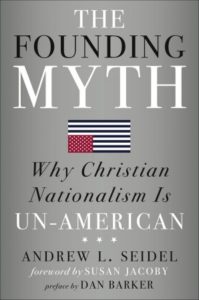
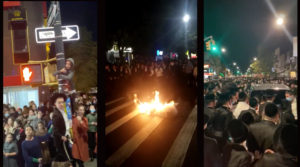
Christian Nationalism Vs The U.S. Constituton
Two weeks ago the United States Supreme Court made a 5 to 4 decision in the case of the Roman Catholic Diocese of Brooklyn and Agadith Israel of America versus Governor Mario Cuomo which reversed a precedent and crashed through the wall separating church and state.
The men who wrote United States Constitution and the Bill of Rights,which separated church and state, were mostly non-Christians. America was not created as a Christian country. That is a myth. Nor was it founded on Judeo Christian principles. This is another myth. The founding fathers were deists. They were products of the enlightenment. They did not believe in a god that played any role in human affairs. They understood from European history the terrible consequences of not separating church and state.
Today’s Christian nationalists and evangelicals, mostly Trump supporters, are relentless in their attempts to tear down the wall of separation. These people have substantial political power. They are much of Trump’s base. They succeeded in getting Amy Comey Barrett appointed to the Supreme Court.
Two weeks ago she along with four reactionary Catholic judges, Alito, Kavanaugh ,Thomas and Gorsuch, prevented Governor Cuomo and his scientific advisors from limiting the number of people who attend Roman Catholic and ultra Orthodox Jewish services in Brooklyn. This decision will cost lives in New York and nationally as it ties the hands of governments trying to limit the human toll of the COVID-19 pandemic.
Guest – Attorney Andrew Seidel, a Constitutional litigator with the Freedom From Religion Foundation and the author of the just published book The Founding Myth: Why Christian Nationalism is Un-American.
—-
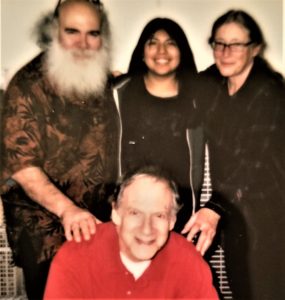
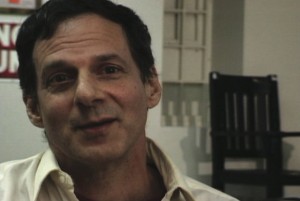
Matt Meyer: Movement Building Post-Trump
In a 2018 Gallup poll half of Americans called the state of moral values in the United States “poor,” and 37 percent say moral values are “only fair.” Over the past four years, a perfect storm of incompetence, misinformation, and reckless decisions by Donald Trump have left a stain not just on moral values but also on democratic institutions and the rule of law. In a chillingly politicized decision, for example, the new overtly right-wing Supreme Court has signaled its preference for religion over public health in its first opinion limiting states’ rights to protect residents from the Covid-19 virus.
As we transition from what no doubt will go down in history as the worst presidential administration in American history, much of the nation is plagued by widespread depression and hopelessness. But bad times for the country provide new opportunities for social justice organizing.
Longtime activist and writer Matt Meyer’s recent blog for Waging NonViolence is called “6 ways to stay focused on movement-building amid the post-election chaos.” He offers concrete suggestions—in effect a moral assignment for the masses– for surviving, and acting—in the wake of four exhausting years under a divisive narcissist.
For more information on David Gilbert
Guest – Matt Meyer, author of several books on resistance and social change chiefly published by PM Press and Africa World Press. He is the Secretary General of the International Peace Research Association, a long-time leader of both the War Resisters League and Fellowship of Reconciliation, the Senior Research Scholar of the Resistance Studies Initiative, and an advisory board member of Waging Nonviolence. He is also on the board of the New York-based A.J. Muste Institute, funding grassroots activist initiatives for half a century.
—————————————————-

—————————————————





















